English transcript
Hello, everyone. Welcome to this presentation on Postcolonialism and Christianity and, specifically, the university. My name is Alex; I am a doctoral student at Azusa Pacific University, which is a Christian college in California, the land of the Tongva people, and so, it’s a little bit of a paradox for me as a descendant of settlers in many ways to be talking about Postcolonialism and Christianity in the university, but it’s also really paradoxical even the idea of post-colonialism within the university, because of the way that the university has been such a catalyst of coloniality and dominance for centuries. And so I’m coming to this space really wanting to engage and learn from one another, and to think critically about what the role of the university is as we advance post-colonial thought in many ways, and to think critically together about the role of the Christian university, specifically. I know around the world there’s lots of different kinds of universities, lots of different iterations of Christianity, so I’m certainly coming from my own context and my own circles that I run in, but I simply want to be thinking together, imagining together what the postcolonial Christian university may entail.
And so, for this session, it’s going to be a brief presentation that kind of sets the stage for some other resources, and an interview, and hopefully a zoom conversation that’s more interactive. And so, really for this brief couple minutes, I want to introduce two maybe foundational parts of this conversation that I think will help guide us in some of the work that that we hope to do in the coming months, and those two realizations I’ll mention in just a couple slides and then paint a picture for where we might go forward down the road.
The first realization: a thing that might be foundational for us in our conversations is to recognize the centrality of education and, specifically, the university in colonization, other forms of domination, to recognize the centrality of education and, specifically, the university in colonization. In my context, what we call the United States today, education was a key mechanism of assimilation – trying to assimilate indigenous peoples into a certain moral framework, certain values, certain beliefs, certain ways of being. In education, schools – boarding schools in this context – were a powerful force of validating certain kinds of knowledge, trying to erase other kinds of knowledge, and legitimizing certain kinds of experiences. It happens in other contexts as well, where education and the university plays a powerful role in shaping the knowledge that’s produced, that’s valued, that’s disseminated.
There’s cases today, more contemporarily, where the World Bank, for example, is very much funding and shaping certain kinds of knowledge production in East African universities – Uganda, Kenya. In Asia – throughout Asia – the United Nations, UNESCO, specifically, developed this massive policy framework through something called the Tokyo Convention that has homogenized higher education throughout the continent, and anytime you kind of draw everyone together through similarities, you erase certain forms of knowledge, happening throughout all of Asia, where certain kinds of knowledge is valued – those knowledges that are deemed worthy by the United Nations. In other parts of sub-saharan Africa, too, with the HIV/ AIDS outbreak in South Africa, for example, there’s some research and history out there of universities controlling the kind of knowledge that was disseminated in such a way that harmed already vulnerable people. So, universities have a long history of being sites of power and domination, and when we come to the space of thinking and trying to imagine what a postcolonial Christian university may entail, there, I think, needs to be a recognition that the university historically and contemporarily is a site of power and control and dominance.
Of course, universities are also sites of liberation, so it’s kind of a complex story, but at least beginning with the fact that education has a history of assimilation and trying to value certain knowledges over other kinds of knowledges. I like to say that universities are not just a star in the constellation of colonialism, they’re the gravity that holds it together, they’re the glue that protects, that produces, that legitimizes greed and power, and so forth. And I think Christian colleges, in particular, ought to be thinking quite critically about that and engaging conversations of postcoloniality more intentionally.
Okay, so the second realization that I wanted to bring to the table was to consider the relationship between Christianity, the land, and the university knowledge all together – certainly not the first to think of this, but I think considering the role of the university in the postcolonial thought needs to take into account the land, and to kind of illustrate that, there’s a couple things on the slide you’ll see: these are Protestant evangelical Christian colleges that are part of a particular network in the indigenous land that they are sitting on as beneficiaries of that land and currently residing on that land.
There’s quite a large movement in secular colleges – I say “quite a large” – there are some instances of movements within secular colleges that are really wrestling with, you know, their past and their history and sitting on indigenous land. But, for the most part, it’s quite rare that Christian colleges and universities, particularly Protestant evangelical ones, are thinking about this – some theological reasons for that, I think, and won’t go into them now. But it’s an important thing to recognize and visually see how institutions today are sitting on indigenous land.
The second story I wanted to mention which also connects to this map is something in my context called “land grant institutions,” and there are similar kinds of things around the world where this has transpired, but land-grant institutions are large state schools, colleges, universities where they were granted to the state by the federal government, who of course had seized the land in the first place, but granted this land, developed these large institutions that have thousands and hundreds of thousands of students every year, and they are known for industrial agriculture and industrial technology. And so not only have these institutions been beneficiaries of seized land, been granted that land, but they’re also constantly training and have for nearly two centuries generations of farmers who aren’t necessarily taking care of the land, and of politicians who are writing, you know, policy on industrial agriculture and many other things.
And so part of the history of higher education in my context is recognizing that the land was indeed instrumental in the proliferation of higher ed in my context and continues to do so, because Christian colleges in the past, as well as I would argue today, are central in training the next generation of Christian leaders, whether that’s clergy or pastors, whether that’s political leaders, or social leaders, leaders in business and society, other ways. And the education that happens in Christian colleges is, in some places, in some contexts, like that of the land-grant institutions where the imagination that is produced in a Christian college allows for westward expansion, allows for domination of the land, allows for the genocide of indigenous life, and that’s something that Christian colleges aren’t necessarily wrestling with in either an active or public way. There might be pockets of reflection at Christian colleges and universities but, in my experience, it’s been very, very little.
And so, a question to consider is basically how might universities as key sites of knowledge production, knowledge dissemination, reassess their relationship to the land. In teaching and researching and service and writing and working with communities around them – how might they reassess the relationship to the land?
So, with those two realizations: the role of the university is central in dominance and recognizing that the university dominates through both the physical, geographical seizing of land as well as creating an imagination of dominance and private goods that continue to erode certain knowledges and certain life. So the task that we have is then, as Christians, as educators, as colleagues thinking critically about what it means to be a Christian, to consider postcolonial thought, and to do so, for many of us, in the university, to think and try to imagine what a different mode might look like. And there’s many, many examples already out there in my context and others of universities really wrestling this. Again, fewer Christian universities, sadly, I would say, but there are some, certainly.
I wanted to just in this last slide show the university of Waikato in Aotearoa, New Zealand as just an example of one university that I would say has indigenous life more infused throughout the university than other institutions in my context, at least. So, in the resources, you’ll see kind of a typology of the ways that universities engage indigenous life, and some of those are in a very limited way. Some institutions might have, you know, a spectacle kind of program where they bring in an indigenous speaker for one lecture or something like that. There might be a whole center or maybe a faculty member who specifically researches, or writes about, or thinks about, or conducts partnerships with indigenous people throughout, you know, their particular context. There might be some more policy or structural changes that are occurring at some institutions, where institutions might be making land acknowledgments, for example. And then, at the other end of the spectrum, would be something more akin to reparations, and Christian colleges might be wary of that conversation, but I think it’s one that is worthwhile and worth having. The conversation about land acknowledgements, as well, is an interesting one which I think would be a good conversation to have.
So, thank you for sticking with this for 15 minutes or so. I look forward to more conversations that we’ll have together. I certainly recognize again that there are many different forms of universities, many different forms of Christianity, and certainly speaking from my own context in this, but very much welcome other insights, whether that’s concerns, or feedback, or protests, all the above. And hope that we have good conversations about what it means to be more faithful followers of Christ who are educators who are thinking critically about the past and want the present and the future to be more just, and to have the courage not just to have conversations and to acknowledge certain things, but then to act in certain ways that might better reflect what we all aspire to be. So please refer to the education module for more information. We’ll certainly want to continue this conversation in other venues and hope to hear from you all soon. Thanks so much.
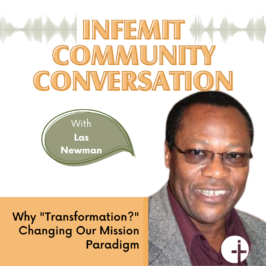
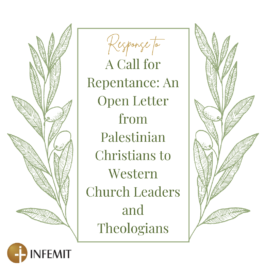
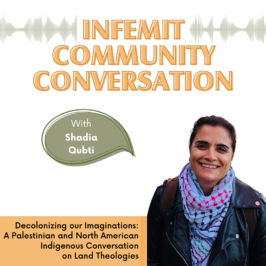
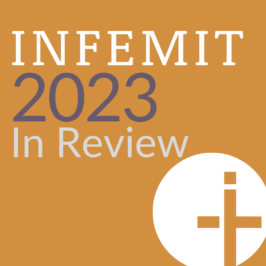
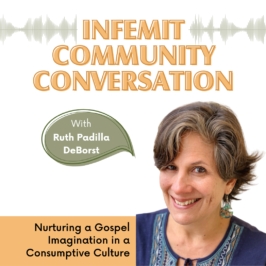

Leave a Reply